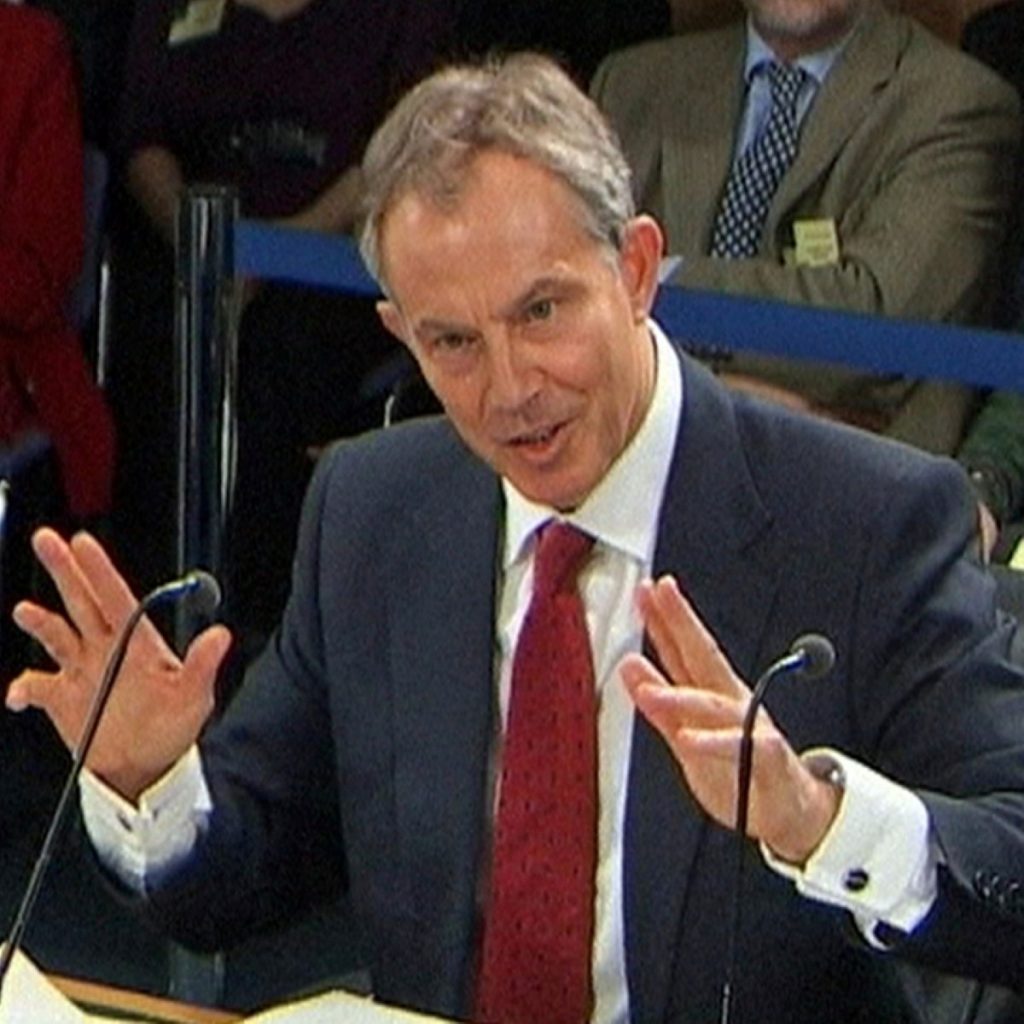Chilcot fury as Blair/Bush memos kept secret
By Ian Dunt
The Chilcot Inquiry into the Iraq war began a new session today, with an angry outburst from the chairman over secrecy from the government.
Sir John Chilcot said that the Cabinet secretary had refused to let him publish memos between Tony Blair and George Bush which revealed the then-prime minister’s thoughts in the lead up to war with Iraq.
“The papers we hold include the notes which prime minister Blair sent to President Bush and records of their discussions,” Sir John said.


“The inquiry recognises the privileged nature of those exchanges but, exceptionally, we sought disclosure of key extracts which illuminate prime minister Blair’s positions at critical points
“The Cabinet Office did not agree this disclosure,” he added.
“The inquiry is disappointed that the Cabinet secretary was not willing to accede to its request. This means that in a narrow but important area the inquiry may not always be able to publish as fully as it would wish the evidential basis for some of its comments and conclusions.
“The inquiry is free to say what it thinks. We shall complete our task and make our own independent judgements about the UK’s involvement in Iraq.”
Sir Gus O’ Donnell rejected the request on the basis that their “release would be likely to damage the UK’s international relations”.
The development comes as new documents revealed that Mr Blair repeatedly shut out legal advice that would have warned against war in Iraq in the build-up to the invasion.
In a batch of evidence made public ahead of Mr Blair’s second appearance at the Chilcot inquiry this Friday, it was revealed that Lord Goldsmith, whose 11th hour conversion to the war’s legality is the subject of huge controversy, was shut out of meetings on the war after he stated that it might be illegal.
In a written statement to the inquiry, the then-attorney general said he was “no longer actively consulted” after informing the prime minster that the Iraq invasion would breach international law.
“My advice was not sought” about UN negotiating tactics, he wrote to the inquiry.
“I was not being sufficiently involved in the meetings and discussions about the [UN] resolution and the policy behind it that were taking place at ministerial level.”
Lord Goldsmith warned of the legal consequences of invading Iraq on January 30th 2003, just before Mr Blair’s final pre-war meeting with George Bush.
At that point, Lord Goldsmith wrote: “Clear advice from attorney on need for further resolution.”
That prompted Mr Blair to scrawl in the margin: “I just don’t understand this.”
Documents released by the Iraq Inquiry last night show that Mr Blair’s chief of staff, Jonathan Powell, discouraged him from giving advice “at this stage”.
Lord Goldsmith goes on to say that he was “uncomfortable” with Mr Blair’s public statements during the period.
The then-prime minister publically said Britain could attack Iraq without a fresh UN resolution.
He also told the Commons that a fresh resolution was not necessary if any country – notably France – imposed an “unreasonable” veto.
Asked whether Mr Blair’s words were compatible with the advice he’d received, Lord Goldsmith replied: “No.”












